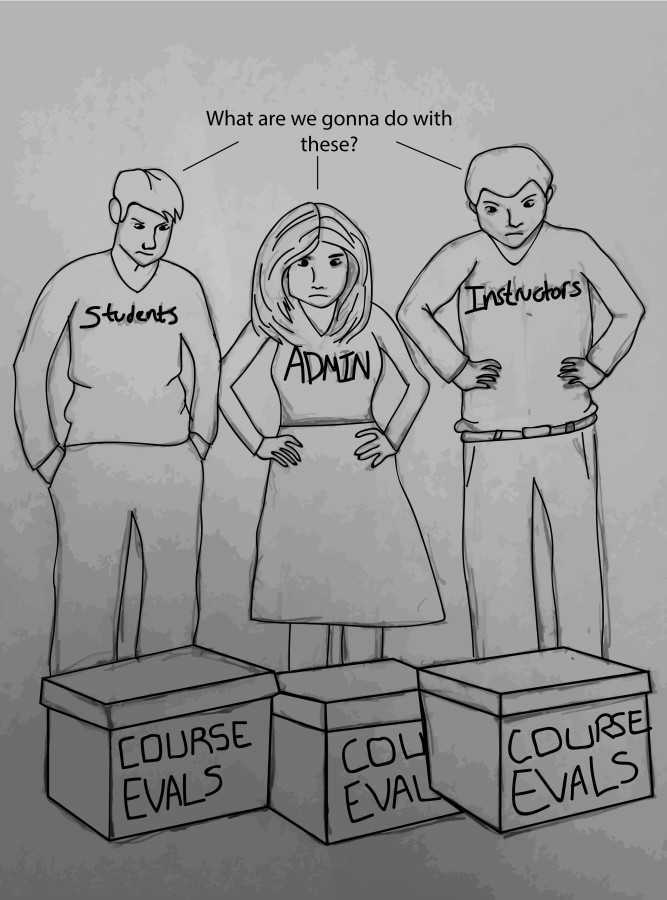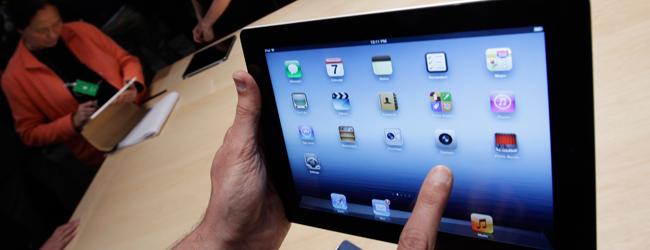In an effort to distinguish itself from another university with a one-letter name difference, there is a Catholic college paving the way for the role of technology in the classroom.
Yes, little Seton Hill University in Pennsylvania has officially deviated itself from Seton Hall University, Marquette’s Big East Conference rival.
Seton Hill, a small college about 2,100 students in Greensburg, Penn., is the first school to give each of its incoming freshmen an Apple iPad and MacBook laptop computer, starting in fall 2010.
The iPad was released Saturday.
Students will receive these items upon enrollment at the university. According to JoAnne Boyle, Seton Hill president, the iPad could change the way students learn forever.
Boyle said students will be able to take notes through the iPad’s Evernote program, and will be able to download textbooks to their iPad from Apple’s iBook store.
The iPad will lighten the backpacks of Seton Hill University students, Boyle said in an e-mail to the Tribune.
While Boyle said the university is absorbing the costs of the iPad, students are charged $500 per semester for Seton Hill’s Griffith Technology Advantage Program, which provides the Apple products to the students.
This is not the first time Apple has infiltrated the learning sector of America’s school system.
Eric Benderoff, a former Chicago Tribune technology columnist who now runs Bendable Media, a media consulting firm, said schools are a part of Apple’s strategy to attract new customers.
“Apple has historically put its computers into the classroom, from grade school to college, at very favorable rates for schools,” he said. “It’s a strategy to capture students at an early age, to build loyalty and familiarity with Apple products. When they become consumers, they will buy Apple.”
Benderoff believes iPads will eventually become a part of the classroom, much the same way certain professors audibly record their lectures for students to listen to on their iPods.
“I imagine, over time, as prices get more comfortable with the platform, that there will be some experimenting with the iPad in the classroom,” he said.
Prior to the iPad’s release, many questioned the need for a computer featuring most of the same functions as the iPhone.
Reviews of the iPad, however, have been overwhelmingly positive, with only minor functions being criticized like the touch screen keyboard, which many complained slowed the typing process down considerably. The Wall Street Journal declared the iPad could “change portable computing profoundly, and challenge the primacy of the laptop.” Business Week said it is “an amazing example of modern computing.”
While the iPad has infiltrated American homes to the tune of 300,000 sold the first day, whether it has similar success in the classroom remains to be seen.
Apple will most likely observe the progress of its tablet computer at Seton Hill closely, especially the electronic book downloading by students.
Barrett McCormick, political science department chair, said e-books may become increasingly popular over the next few years, but not because of the iPad.
“At its current high price, the iPad is not going to drive a mass consumer market,” McCormick said in an e-mail to the Tribune.
McCormick added that the current e-book market is driven by pirated copies of textbooks.
“There are already a couple of Web sites that offer free downloads of pirated copies of otherwise expensive books,” he said. “If it becomes easier and cheaper to scan books, we can expect the supply of free texts to increase.”
McCormick, however, is still a fan of books in their current physical form.
“I expect most students and professors have similar feelings,” he said. “But if it is possible to save hundreds of dollars per student per class and still get the same content, it is pretty hard to justify sticking with the traditional format.”



